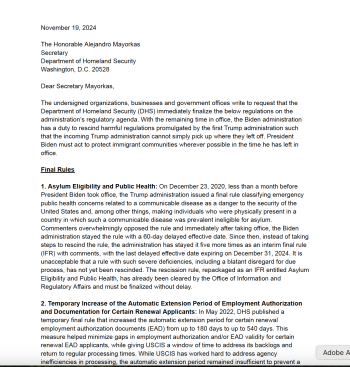These forms aim to support DACA recipients living in Illinois establish an LLC to continue earning a living outside of the confines of the program.
These forms aim to support DACA recipients living in California establish an LLC to continue earning a living outside of the confines of the program.
When the first Trump administration took office in 2017, it immediately adopted restrictive policies on asylum, making it more difficult for asylum seekers to win their cases. Trump returning to office in January 2025 raises fears that asylum-seekers will once again be a focus of the administration’s anti-immigrant policies. Although the new administration will likely enact policies that are harmful to asylum seekers, certain changes would require Congressional action. Moreover, executive actions on asylum could be challenged in court. This alert explores what a second Trump term could mean for asylum seekers and what the administration can, and cannot, change on its own.
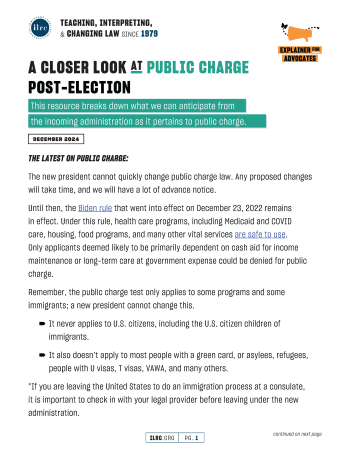
Given the previous Trump administration’s use of public charge as a means to limit access to immigration benefits, many may be facing renewed anxiety about public charge. This resource aims to provide advocates and community members with an understanding of what public charge changes are—and are not—possible under a second Trump administration, including timing of any possible changes and recommendations for community members.
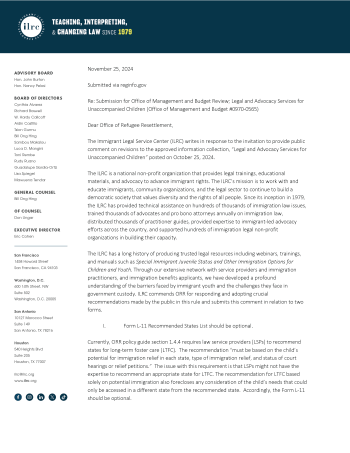
On November 25, 2024, the ILRC submitted a comment on the Office of Refugee Resettlement’s (ORR) changes to various legal advocacy forms for children in ORR custody.
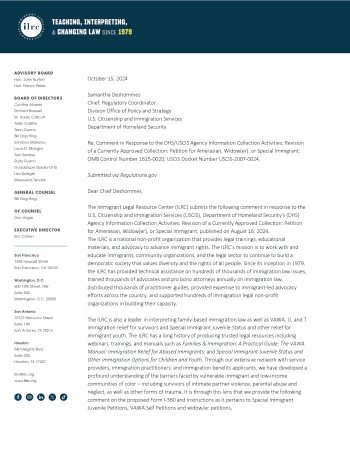
On October 15, 2024, the ILRC submitted a comment on the proposed changes to Form I-360, encouraging USCIS to increase the accessibility of the form for pro se respondents, including Special Immigrant Juvenile Status Applicants and VAWA self-petitioners.
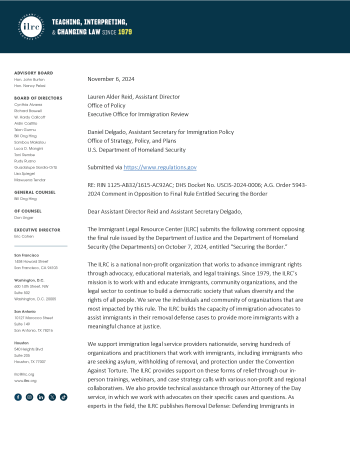
On November, 7, 2024, the ILRC submitted a comment on the final Securing the Border rule. ILRC had submitted comments on the interim final rule in July 2024, and reiterated our strong objections raised in that comment. The ILRC further objected to the inclusion of unaccompanied children in the threshold count for lifting the border restrictions and the expanded applicability and geographic reach of the Circumvention of Lawful Pathways rule.
